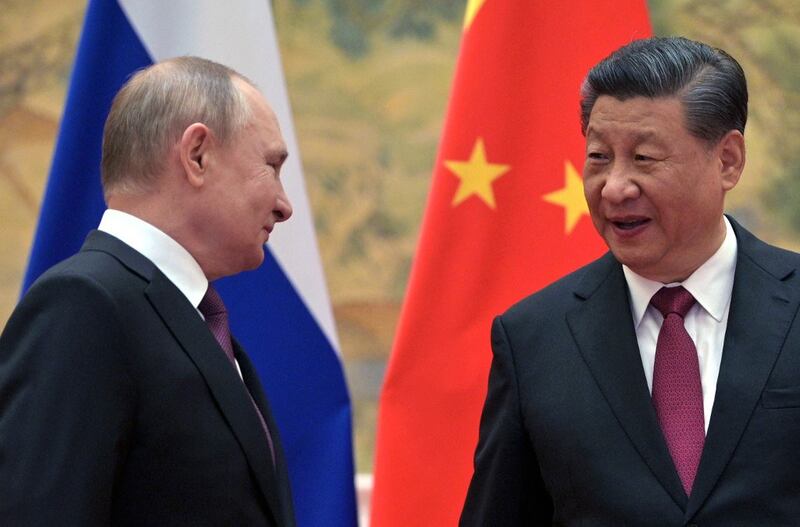On Feb. 24, in a day that will be remembered forever, Russia’s Vladimir Putin started a war with Ukraine. Though he avoided officially declaring “war” and opted instead to call it a “special military operation,” at any rate, he launched a premeditated invasion.
Even before the war, when the world turned its focus on the Ukraine crisis, the standoff in the Taiwan Strait was not forgotten.
Dan Blumenthal, director of the Asian Studies program at the American Enterprise Institute (AEI), warned that Beijing could use the Russian strategy in Ukraine in its playbook against Taiwan to orchestrate a political-military crisis to coerce Taiwan into submission.
If the United States does not want to be caught off guard, it should start preparing for such a scenario today, the former Pentagon official wrote in Foreign Policy a week before the invasion.
This association is of deep and pragmatic significance, and Blumenthal’s call resonated not only in the U.S. but in Europe as well.
British Prime Minister Boris Johnson said that “If Ukraine is invaded, the shock will echo around the world … and those echoes will be heard in East Asia, and they will be heard in Taiwan.”
French Foreign Minister Jean-Yves Le Drian told Nikkei Asia in a written interview that a key part of the important economic, environmental, and geopolitical balance of the 21st century is playing out in the Indo-Pacific region.
Security in the Taiwan Strait is of utmost importance to the security of the Indo-Pacific region. France is "very keen to act to prevent any conflict." Meanwhile, “We condemn any attempt to undermine the status quo, any action likely to cause an incident that would lead to an escalation. This is a concern we share with our European partners."
This is the first time that two major European countries have publicly supported Taiwan in security issues. From the Russian invasion of Ukraine to the tension and standoffs in the Taiwan Strait, though the conditions may be different, the aggression is in essence the same. They should be condemned and stopped by the international community.
Former U.S. Secretary of State Condoleezza Rice suggested last October in an online symposium hosted by a British think tank that China will not launch a full-scale attack on Taiwan.
Instead, Beijing could use paramilitary forces to infiltrate Taiwan and create various kinds of disruptions within Taiwan, such as on social media, cutting off underwater cables, creating cybersecurity threats, and nurturing and controlling pro-Beijing camps to subvert Taiwan, just like what Putin is doing in Ukraine, Rice said.

Now that Putin has launched the attack on Ukraine and his troops are pushing ever closer to Kyiv, faster than Rice anticipated, the West may have to realign and restudy what they know about Putin.
Putin once said that China does not need to unify Taiwan through military might; the goal of unification can be achieved through mighty economic power.
What will Xi Jinping do next? It would not be easy to launch a full-fledged war against Taiwan. Xi’s short-term goals is likely to be to maintain high tension in the Taiwan Strait with military means to deter Taiwan from leaning towards the U.S., declaring independence, or making any changes in U.S.-Taiwan relations (towards formal diplomatic ties or a formal alliance).
In the medium-to-long term, it is within Xi Jinping’s goals to bring about change in the world order to make China an emerging superpower. It is also his intention to complete Beijing’s proclaimed mission of unification with Taiwan by following the path of modernization in the middle of this century.
How Xi can accomplish these goals will depend on how he deals with the Taiwan issue. “Forcing negotiations through war” is one possible way. The United States is a key factor. If the United States does not want to be caught off-guard, it should preemptively begin to prepare for such a day.
Qi Leyi, a veteran observer of China-Taiwan relations and Indo-Pacific security affairs, is the host of RFA's program "Military: No Restricted Areas.” This commentary reflects his personal views.
Translated by Min Eu.
